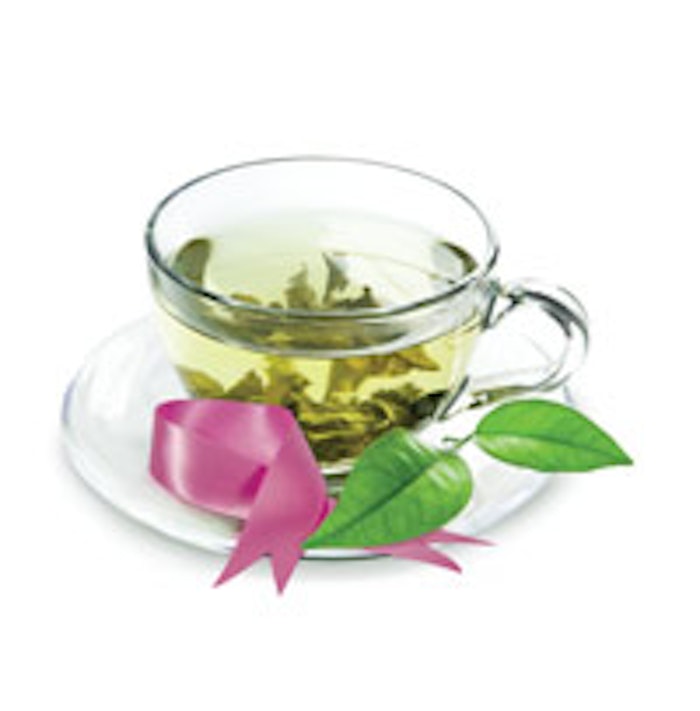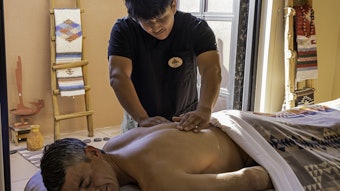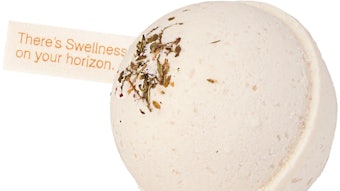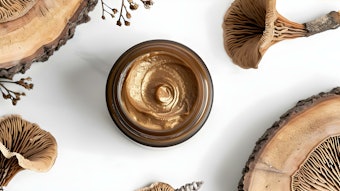
Twenty-five years ago, I became an esthetician because of my interest in beautifying the skin and invoking the importance of relaxation as a way of taking care of the self. I have always had a passion for good health and good food.
Five years ago, I was diagnosed with cancer. As the saying goes: It was a gift in strange wrapping paper. This challenge has allowed me to grow in a new way as a service provider, warrior and thriver.
Through this experience, it became clear that the future for skin care professionals and spas is going to be different than in the past. Estheticians need to be more in tune with the lifestyles of their clients and be able to coach them for overall health. What is seen on the skin is revealing much more about the overall health of the body than first realized. It is important to be educated about what the skin is revealing, guide your clients on their dietary choices and work with their physicians.
Whatever your reasons are for choosing professional skin care as career, take a moment to look ahead and see yourself down the line in five, 10 ... even 25 years. The future will require you to know more about supplements and how to support the body before illness strikes. There is so much more that can be achieved with your business and its offerings when you expand your vision.
Cancer and clients
Many professional skin care and spa suppliers now offer supplements, and for good reason: Most clients’ diets are lacking in nutrients. Daily food choices add up over the years. The World Cancer Research Fund International, an organization that leads and unifies a global network of cancer charities dedicated to the prevention and control of cancer, recently released a statement that eating a nutritious diet, being physically active and keeping body fat under control may prevent the chance of developing:
- Breast cancer by 38%;
- Lung cancer by 36%;
- Stomach cancer by 47%;
- Esophageal cancer by 69%;
- Pancreatic cancer by 39%;
- Mouth cancer by 69%;
- Kidney cancer by 24%; and
- Liver cancer by 15%.
The American Cancer Society estimates between 5–10% of cancers are hereditary, meaning 90–95% are determined by lifestyle. Many of these are avoidable, but how many clients really understand the impact of cancer-influencers, such as tobacco, poor diet, radiation, alcohol, excess weight, depleted immune systems and lack of exercise?
Your role as a skin care professional is much deeper than creating beautiful skin. For example, when faced with excessive redness or acne skin types, what is the first thing you think of? Does diet come into consideration? How deeply do you consult with your clients about their lifestyle habits and daily food choices? Without a closer review of their food intake, you may be limiting your success when working with these clients to resolve their skin care concerns.
Supplements and cancer-fighting foods
Eating a variety of fresh, whole foods is one of the best ways for your clients to protect themselves, and live with a lot of energy to support their activities. People who consume five or more fruits and vegetables daily reduce their likelihood of developing lung, colon, stomach, esophageal and oral cancers by 40%, according to the Centers for Disease Control.
Supplements are often overwhelming for clients, and they require a great deal of research. Recommend that your clients speak with their physicians about nutrients and supplements. If they find their physician’s knowledge lacking, have a nutritionist reference available that you can recommend with confidence.
Supporting a healthy lifestyle involves strengthening the immune system through food, herbs, mental relaxation and daily movement. The spa environment is an excellent source of education for clients facing cancer. Collaborate with dieticians, nutritionists and physicians, and create a wellness schedule featuring lectures about supporting a healthy lifestyle, especially if you are nurturing clients as they go through cancer treatment.
Following is a list of some dietary and supplement options for clients and their physicians to consider.
Avocados. Loaded with glutathione, a powerful antioxidant that can attack free radicals, avocados have more potassium than bananas.
Berries. Strawberries, blueberries, blackberries, raspberries and goji berries are all loaded with vitamins and minerals. The plant compounds, anthocyanins, which are found in berries, may protect against cancer, and the ellagic acid found in raspberries and strawberries has been shown to slow tumor growth.2
Brightly colored fruits and vegetables. These are loaded with nutrients and fiber, and stimulate immune-fighting cells to further protect the body from cancer. Studies exist that support the idea that people who have fought breast cancer by consuming a diet rich in cartenoid foods live longer than those who consumed fewer of these types of foods.2 Oranges, lemons, grapefruits and limes offer vitamin C, which helps protect against estrogen-type breast tumors. These fruits contain limonene, which stimulates cancer-killing immunity cells.2
Dark green vegetables. Kale, Brussels sprouts, broccoli, asparagus and spinach all contribute to reducing free-radical damage and carcinogens.2
Gamma fats. Found in walnuts and sesame oil, gamma fats are instrumental as a source of vitamin E. Studies reveal that vitamin E may be able to kill existing tumor cells without harming the healthy cells.3
Garlic. Immune-boosting compounds from garlic support the fighter cells found in the stomach, because garlic has an antibacterial effect on Helicobacter pylori, which is also found in the stomach, where it is known to promote cancer. Onions, chives and shallots all contribute to regulating blood-sugar levels. By controlling sugar levels, clients can further support reducing the growth of cancer cells.2
Green tea. Not only is green tea a metabolism-booster, its polyphenol content also may help prevent cancer cells from dividing.2 When these molecules are abundant, there is support to block the inflammation necessary for tumor growth.
Omega-3 fatty acids. Found in fatty fish, such as salmon and tuna, as well as in flax seeds, omega-3 fatty acids reduce inflammation and fight against heart disease. Consuming them more than twice per week may result in a reduction of the risk of cancer.2
Tomatoes. Tomatoes contain lycopene, which supports the body by attacking free radicals that damage cells.2 Watermelon, carrots and red peppers also contain lycopene.
Turmeric. A powerful anticancer spice with one of the highest anti-inflammatory effects, turmeric can be added to food. It’s part of the ginger family and is found in curry. Turmeric is best when added to a meal during the last stages of cooking, and is better when consumed via food instead of as a supplement. Absorption during the digestive process is more of a challenge in supplement form.2
Vitamin D. One of the most interesting connections in recent years is the importance of vitamin D in the fight against cancer, as well as other health issues, including seasonal affective disorder (SAD). Ten to 15 minutes of sun exposure helps to stimulate vitamin D levels in the body. For this to occur in an ideal fashion, people should not wear sunglasses and should expose only a small amount of skin.
Food awareness
According to Annie Eliopoulos, clinical oncology dietician with Cadence Health/Living Well Cancer Treatment in Geneva, Illinois, keeping up with adequate protein is important. “Most patients going through treatment have increased protein needs that can typically be reached through slight modifications in meal and snack choices. Adequate fluid intake is very important, because the body is working hard to process different medications. Fluids are essential to achieve this.”
Eliopoulos also urges caution about foods that are contraindicated while clients are in treatment. “Use great caution with food safety practices, because many people are at risk for immune suppression during their treatment period. Higher-risk foods include raw, sprouted vegetables; raw dairy products; and raw or rare fish, poultry and meat. High-risk food scenarios that should be limited or avoided during treatment due to an increased risk for food-borne illnesses include buffets, salad bars, grocery store samples and store-prepared deli salads,” she says.
You are what you eat!
Food selection and supplements can support the body and maintain client health, especially when those clients are experiencing the trials of cancer. Nutrition choices must support the body and help it fight as hard as possible for a healthy recovery.
Future estheticians will expand their roles in regard to services. More knowledge will be necessary to learn how to keep the body’s largest organ healthy and beautiful, and much of client-coaching in the future will take place beyond skin and include a closer look at the impact of daily nutrition.
REFERENCES
- healthland.time.com/2012/02/02/should-sugar-be-regulated-like-alcohol-and-tobacco/?iid=hl-main-lede#ixzz1lrbM9nnD
- LT Nelson, From Surviving to Thriving ... Rebuilding the Immune System After Cancer Treatments and Living a Preventive Cancer Lifestyle (2009)
- news.uns.purdue.edu/html4ever/2004/041214.Jiang.vitamine.html
(Websites accessed Aug 15, 2014)
GENERAL REFERENCES
www.mercola.com (Accessed Aug 4, 2014)
PZ Pilzer, The Wellness Revolution: How to Make a Fortune in the Next Trillion Dollar Industry, Wiley, Hoboken, NJ (2002)
A Niemerow, Super Cleanse: Detox Your Body for Long-Lasting Health and Beauty, William Morrow Paperbacks, New York (2011)
H Murad, The Water Secret: The Cellular Breakthrough to Look and Feel 10 Years Younger, Wiley, Hoboken, NJ (2010)
Elaine Sauer is a licensed esthetician and CIDESCO Diplomate, as well as an industry consultant with a specialty in multiunit management, training and sales. She works with businesses to improve their hiring, service standards, sales and staff development functions, and can be reached at [email protected].










